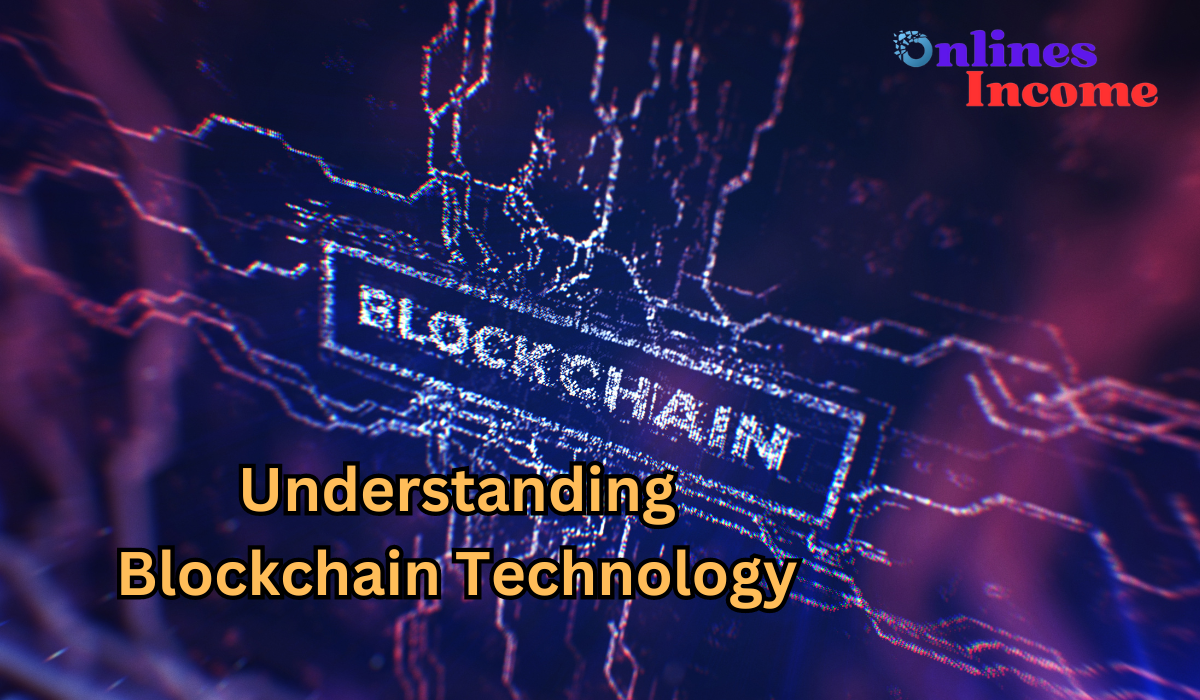Blockchain, the revolutionary technology that underpins cryptocurrencies like Bitcoin and Ethereum, has garnered widespread attention in recent years. Yet, despite its growing popularity, many individuals still find themselves puzzled by the concept of blockchain. In this comprehensive guide, we delve into what blockchain is in simple words, demystifying its intricacies and shedding light on its profound implications for various industries.

What is Blockchain?
At its core, blockchain is a decentralized ledger technology that enables secure and transparent peer-to-peer transactions. Unlike traditional centralized systems, where a single authority controls the flow of information, blockchain operates on a distributed network of computers, or nodes, which work together to validate and record transactions in a tamper-proof manner.
The Building Blocks of Blockchain
The term “blockchain” derives from its structure, comprised of interconnected blocks of data. Each block contains a batch of transactions, along with a unique cryptographic hash that links it to the preceding block, forming a chain. This cryptographic linkage ensures the immutability of the ledger, as any attempt to alter a single block would necessitate altering all subsequent blocks, a feat virtually impossible to achieve without consensus from the majority of the network.
Decentralization and Consensus Mechanisms
Central to blockchain’s resilience is its decentralized nature, which eliminates the need for intermediaries and fosters trust among participants. By distributing the ledger across multiple nodes, blockchain mitigates the risk of a single point of failure, enhancing security and reliability.
Moreover, blockchain relies on consensus mechanisms, such as Proof of Work (PoW) and Proof of Stake (PoS), to validate transactions and maintain the integrity of the network. These mechanisms incentivize participants to act honestly and discourage malicious behavior, ensuring the consensus of the majority prevails.
Applications of Blockchain Technology
Beyond its association with cryptocurrencies, blockchain technology holds immense potential across various sectors, offering solutions to a myriad of challenges. Let’s explore some of the applications of blockchain:
1. Financial Services
In the realm of finance, blockchain has the power to streamline processes, reduce costs, and enhance security. From cross-border payments and remittances to smart contracts and tokenization, blockchain is revolutionizing the way transactions are conducted, providing greater efficiency and transparency.
2. Supply Chain Management
Blockchain’s transparent and immutable nature makes it an ideal solution for supply chain management, enabling end-to-end traceability and authentication of products. By leveraging blockchain, companies can mitigate the risk of counterfeiting, ensure ethical sourcing, and optimize logistics operations.
3. Healthcare
In healthcare, blockchain holds promise for secure patient data management and interoperability. By storing medical records on a decentralized ledger, patients gain greater control over their data, while healthcare providers can access accurate and up-to-date information, leading to improved diagnosis and treatment outcomes.
4. Identity Management
Blockchain-based digital identity solutions offer a secure and decentralized means of verifying and authenticating individuals’ identities. Whether for KYC (Know Your Customer) processes or voting systems, blockchain technology enhances privacy, reduces fraud, and empowers individuals to control their personal data.
Future Outlook
As blockchain continues to evolve, its impact on society is poised to expand exponentially. From decentralized finance (DeFi) and non-fungible tokens (NFTs) to governance and beyond, the possibilities are endless. By embracing blockchain technology, organizations can unlock new opportunities for innovation and disruption, paving the way for a more transparent, efficient, and equitable future.
